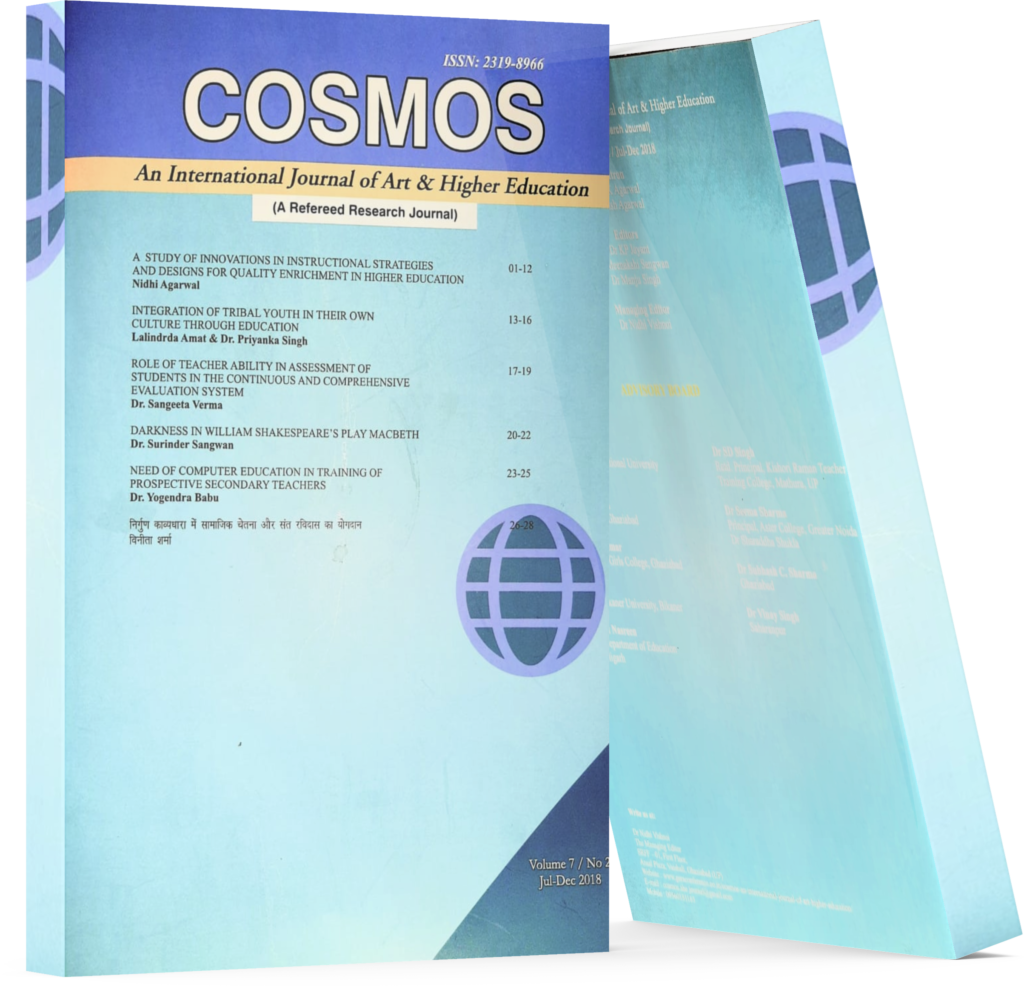Focus Of Future Classroom: Computer-Based Simulated Environment
Keywords:
Future Classroom, Simulated EnvironmenAbstract
In present era college students are becoming more technologically savvy and are looking to the Internet and their cell phones for entertainment, and to social networks to meet new people who share the same interests as them. The 21st century continues to escort in technological advances that modify the scenery of communication, socialization, and private versus public information. One such transform is the distinction that social networking websites currently get delight from, especially among the younger age cohort. The objectives of this study are to verify in an Indian context for investigate role and position of virtual communication in future classroom. Prospect classroom should pay attention towards altering and diversified requirements of learner. Schools have to make policies regarding usage and misusage of virtual communication to avoid emerging cyber-bullying crime. Improvement of interactive communication and understanding the effect of social networking on the personality, attitudes, values and achievement level can enhance the empowerment of future virtual classrooms. Different pedagogy situations can benefit from young people's addictive tendencies toward internet usage because these students use the Internet for many hours per week. Most students utilize it for interpersonal relations than peers who participate in professional communities; discussions and virtual learning.
Downloads
References
Baker, James R. & Moore., Susan M., (2008). “Cyber Psychology & Behavior”, 11(6), 747- 749, doi:10.1089/cpb.2008.0053.
D., Epstein, (2007). “The many faces of Facebook”, Inside Higher Ed. http:// www.insidehighered.com/news/2006/06/15/fac ebook. Accessed May 22, 2007.
F., Stutzman, (2007). “An evaluation of identity-sharing behavior in social network communities”, Ibiblio.org, http://www.ibiblio .org/fred/pubs/stutzman_pub4.pdf, Accessed June 8, 2007.
Jackson, Linda, Zhao, Yong, Witt, Edward A., Fitzgerald, Hiram E., Eye, Alexander Von & Harold, Rena, (2008). “Cyber Psychology & Behavior”, 12(4), 437-440, doi:10.1089/cpb. 2008.0286.
Krug, Gary, (2005). “Communication, Technology and Cultural Change”, London: SAGE Publications, Ltd..
M., Bugeja, (2006). “Facing the Facebook”. Chron Higher Educ., 52(21), C1.
Pelling, Emma L. & White, Katherine M., (2009). “Cyber Psychology & Behavior”, 12(6), 755-759, doi:10.1089/cpb.2009.0109.

